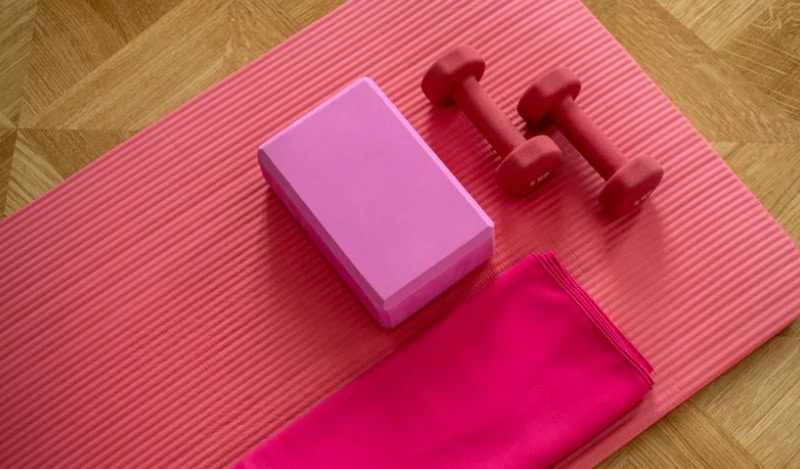A Woman’s Guide to Life After Menopause Menopause, which occurs...
Read More
- Neil Reyes
- August 5, 2021
- No Comments
Three Ways to Boost Your Immune System During the Covid-19 Pandemic

The Covid-19 pandemic has disrupted our lives in many different ways, including our livelihoods, relationships, health, and safety. As of writing, 131 million Covid-19 cases have been recorded worldwide, with almost 31 million coming from the United States alone.
Despite 162 million vaccine doses having being administered in the US as of writing, Covid-19 was found to be the third-underlying cause of death in 2020, according to the Centers for Disease Control and Prevention (CDC).
“Even with vaccine rollouts happening nationwide and in different parts of the world, it’s vital for everyone to keep their guards up when it comes to their health,” Luisa Remponi, PSS Home Care’s Director of Patient Services. “It’s important to keep our immune systems strong to help defend against Covid-19 infections,” she added.
We list down three helpful tips to keep your immune system strong:

01.
Eat and drink well at home
It’s no secret how healthy food is crucial to strengthening the immune system. By including these vitamins and nutrients in your daily diet, you can help boost your immune system:
- Vitamin A, which helps ensure proper immune system function. It also helps in the production and function of white blood cells that help protect the body against infectious diseases. Examples of vitamin A-rich foods include eggs, milk, spinach, carrots, red peppers, mango, papaya, and apricots.
- Vitamin C, which helps repair tissues, ensures proper immune system function, and stimulates the formation of antibodies. Examples of vitamin C-rich foods include broccoli, dark leafy vegetables, brussels sprouts, cauliflower, red peppers, citrus fruits, papaya, guava, pineapples, and blueberries.
- Protein, which helps fight off infections and builds and repairs tissues. Examples of protein-rich foods include legumes, tofu, green peas, snow peas, beans, rice, corn, asparagus, and quinoa.
“Good nutrition is incredibly important for a healthy body. The more unprocessed, fresh food you intake, the better your overall health will be,” remarked Luisa.
Proper hydration also plays a crucial role in keeping the body in tip-top shape. Drinking 8-10 cups of water per day will help keep your body hydrated and help stabilize your energy levels throughout the day.
Aside from eating and drinking well, it’s also a good idea to avoid eating out as much as possible. By staying at home, you reduce your risk of being exposed to people who may be carriers of the disease. This is especially risky when eating out as you have to remove your mask when you eat and drink. It’s also difficult to tell if frequently touched surfaces, such as tables, doors, and chairs, are disinfected regularly.
“Not only will eating in help you avoid getting tempted by fast food choices, fatty foods, and excessively sugary food and drinks, it will also help keep you safe from being exposed to Covid-19,” she said.

02.
Get enough exercise and sleep
Exercise is another big immune system-strengthener. In fact, a 2019 study has proven that moderate-intensity exercise contributes to lower rates of upper respiratory tract infections — which is important during a pandemic. Exercising also increases blood flow and strengthens antibodies to fight off infections.
“Exercise can be done even at home. Just doing household chores or doing resistance band exercises for a few minutes per day can help do wonders for your health,” said Luisa.
Aside from exercising the body, it’s also important to let it get enough rest. During sleep, the human body produces cytokines — a large group of proteins that help stave off infection and inflammation. To keep a healthy body, you would need to have quality sleep: ideally, seven to nine hours each night.
“Sleeping recharges our bodies — it helps us rest after a full day’s worth of activities. Not only that, but it also helps make our bodies become more resilient against different kinds of illnesses,” stated Luisa.

03.
Get proper emotional and mental health support
The pandemic is challenging — and highly stressful. All of a sudden, the whole world is in the throes of unfamiliar and anxiety-inducing situations. And stress has a direct effect on a person’s health. Stress is associated with different conditions and illnesses, such as headaches, asthma, and gastric ulcers. Stress also suppresses the immune system’s ability to fight off antigens, making us more vulnerable to infections.
“When people are stressed, they can also become more susceptible to unhealthy coping mechanisms, such as substance abuse,” remarked Luisa.
“Whether you’ve been infected with Covid-19, or are socially isolated because of it, it’s vital to get proper emotional and mental health support from professionals and loved ones,” she added.
Check out our other articles
Monkeypox Overview: What It Is, Who’s At Risk, and What You Need to Know
Monkeypox Overview:What It Is, Who’s At Risk, and What You...
Read MoreLiving and Caring: Improving Patient and Caregiver Quality of Life with Respite Care
Living and Caring: Improving Patient and Caregiver Quality of Life...
Read MoreHappy Lives with HHAs: How to Help the Elderly with Loneliness
Happy Lives with HHAs: How to Help the Elderly with...
Read More



